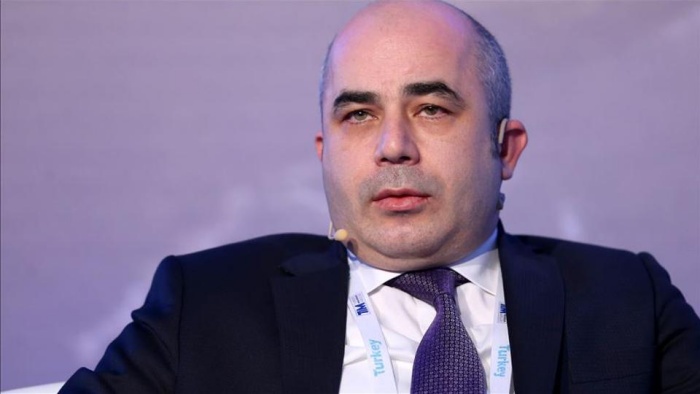Turkey’s central bank has used a significant part of its leeway for loosening monetary policy, Governor Murat Uysal said on Thursday, after the bank cut its key interest rate by 1,000 basis points in less than four months, Reuters reported.
Uysal also said the bank had lowered its mid-point inflation forecast for the end of 2019 to 12 percent, down from a prediction of 13.9 percent in July. Analysts had expected a reduction to 12 percent or lower.
A currency crisis last year tipped Turkey’s economy into recession and sent inflation soaring above 25 percent, prompting aggressive monetary tightening. Inflation eased to as low as 9.26 percent in September.
“I want to stress that … at the point we have reached, we have used a significant portion of the space in the loosening direction,” Uysal told reporters at a news conference to present the bank’s quarterly inflation report.
A moderate recovery in economic activity continues, but investment remains weak and a weakening global outlook is tempering external demand, the governor said.
The bank slashed its policy rate to 14 percent last week, taking advantage of slower inflation and a steadier lira after Washington canceled sanctions over Ankara’s Syrian military offensive. The repo rate stood at 24 percent before it began easing policy in late July.
“There is a notable improvement in the main inflation trend. That is the fundamental factor in our decision,” Uysal said. “The expansionary global monetary policies support us.”
Asked about the threat of sanctions, he said Turkey’s financial system was prepared for all risks. On Wednesday, Washington said it had a list of possible Turkish sanctions targets but did not expect to use them.
Uysal said the latest rate cut was due not only to “base effects” but also to improvements in inflation expectations and pricing behavior. He said the bank’s future policy steps would depend on further developments in inflation.
A year after it rose sharply, Turkey’s annual inflation dropped to 9.26 percent in September, reaching single figures for the first time in more than two years thanks to the higher year-over-year measurement base.
Consumer price inflation is expected to remain in single digits in October and rise in the last two months of 2019, Uysal said. The central bank kept its forecast for end-2020 inflation unchanged at 8.2 percent, with inflation seen at 5.4 percent at end-2021 and 5 percent in the medium term.



